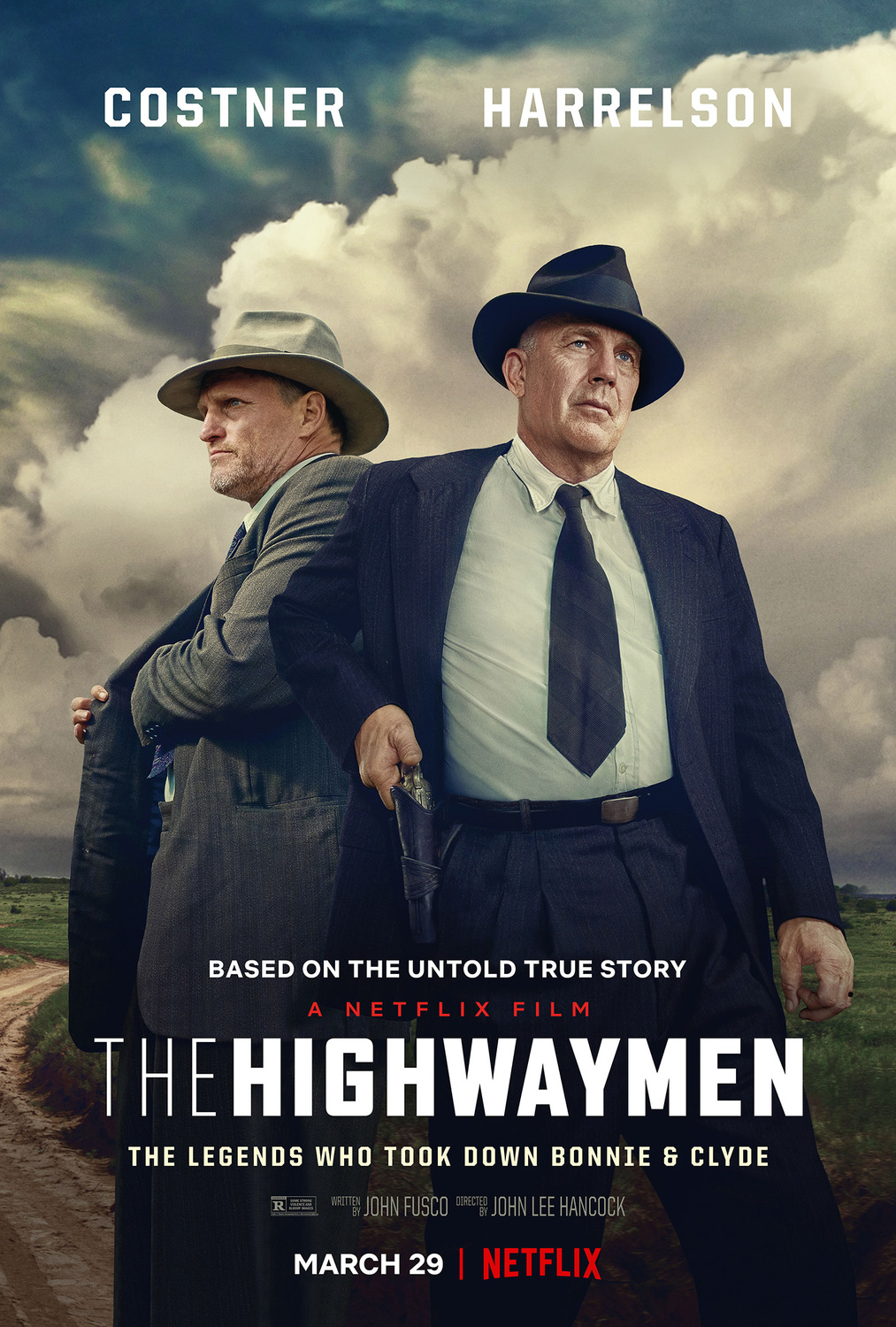Despite Clyde Barrow and Bonnie Parker’s standing as one of the most notorious duos of the twentieth century, Hollywood certainly hasn’t brought their story to the big screen very often—Arthur Penn’s 1967 masterpiece Bonnie and Clyde is the only major production so far, in fact. And Texas Ranger Frank Hamer, who led the posse who brought the pair down, has never had his story told… at least accurately. (Hamer’s wife and son sued the producers of Bonnie and Clyde for defamation of character due to his horribly unflattering portrayal in the film. They won a settlement.)
Now Hamer is finally getting his due in Netflix’s The Highwaymen, a largely forgettable film starring Kevin Costner as the heroic lawman and Woody Harrelson as his partner Maney Gault. Though it certainly has plenty of potential, along with volumes of source material from which to draw—not to mention the continuing fascination with the legendary murderous duo—The Highwaymen never quite gets up to speed, instead seemingly content to just tell an incredible story in as straightforward a manner as possible while at the same hitching its wagon to one of the most head-scratching decisions in recent movie history.
The ultimate blah-ness of the movie is no surprise, really, given that the man in the director’s chair was John Lee Hancock—whose previous efforts, including The Blind Side, Saving Mr. Banks, and The Founder, succeeded despite him and not because of him.
The longer The Highwaymen goes, the more surface comparisons can be drawn to 1987’s The Untouchables. As with Brian DePalma’s excellent film, Costner plays a put-upon lawman with a hardscrabble crew using unconventional means to track down the most hideous criminals of the day. And it culminates with a watching-the-clock, super-tense scene as the good guys wait for their trap to be sprung.
The similarities, however, end with that plot outline. When taken as a whole, the films exist in completely different leagues, and it doesn’t take long for The Highwaymen to start looking like a wannabe baby brother. The pedestrian script by writer John Fusco (The Shack) offers precious little in terms of depth or insight, but the larger, more obvious problem, is the bizarre decision to relegate Bonnie and Clyde to the status of faceless antagonists throughout the film. (We literally never see their faces until the final shootout, and then only briefly.) It’s as though it doesn’t matter who Hamer is hunting, as long as we just know that they’re bad, bad folks. And it’s that fatal flaw that ultimately kills any chance The Highwaymen might have had of becoming even a decent movie.
The brazen, blood-thirsty Bonnie and Clyde have always been the stars of their own story, and Hamer—like Ness before him—only made a name for himself because of the specific criminals he caught. Imagine, if you will, watching The Untouchables but never seeing Robert De Niro’s face as Al Capone at any point along the way, depriving us of any context, confrontation, or even conflict. That’s the situation we find ourselves in with The Highwaymen, and it’s the biggest reason (among more than a handful) that it never even gets a shot off.
Rating
1.5/5 stars
